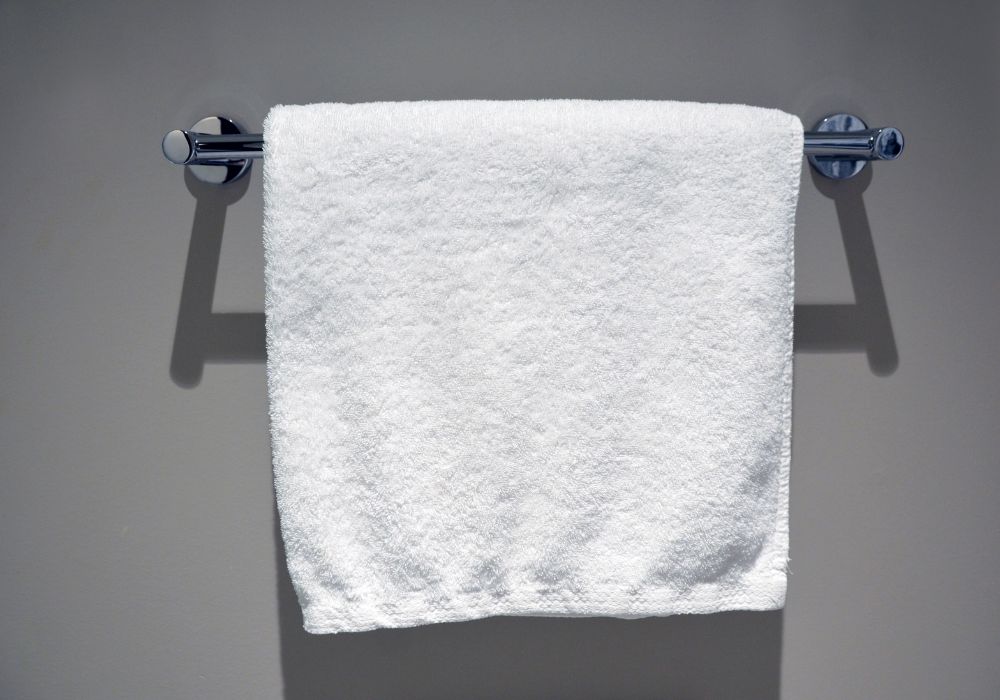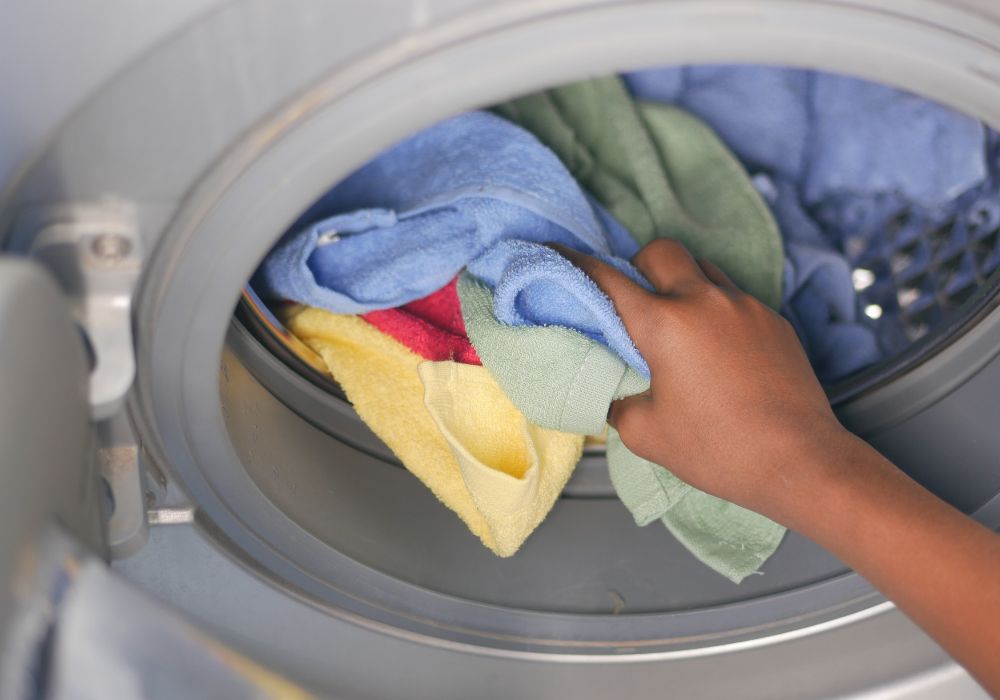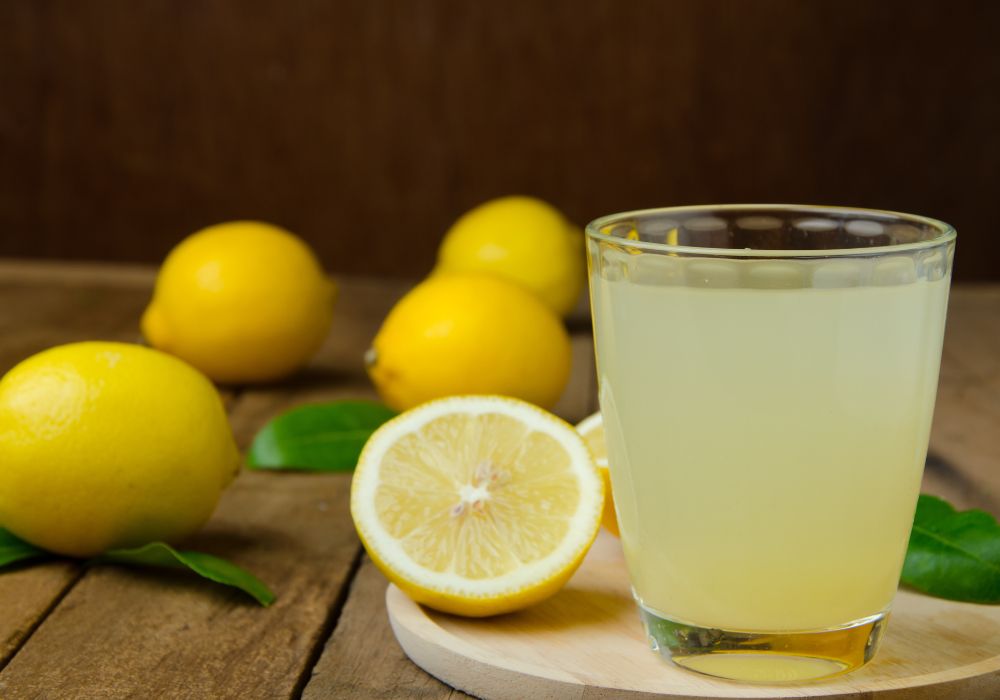Laundry towels can develop a musty smell over time, which can be unpleasant.
It’s important to keep towels smelling fresh and clean because they come into direct contact with our bodies, and nobody wants to use a towel with a lingering odor.
After all, who wants to wrap themselves in a towel that doesn’t smell fresh and clean?
In this article, we will explore practical techniques to eliminate the smell in laundry towels, ensuring they remain fresh and pleasant.
Why Do My Towels Smell? (Even After Washing Them)
It can be frustrating when your towels still have a lingering odor even after washing them. There are several reasons why this may occur:
- Residue Buildup: Over time, towels can accumulate residue from detergents, fabric softeners, and other laundry products. This residue can trap odors and cause towels to smell even after washing. Using excessive amounts of these products or not rinsing them thoroughly can contribute to the problem.
- Insufficient Washing: If you don’t wash your towels frequently enough, bacteria, sweat, and body oils can build up in the fibers, leading to persistent odors. Towels that are used often, such as bath or gym towels, may require more frequent washing to maintain freshness.
- Improper Drying: Inadequate drying methods can also contribute to towel odors. If towels are not thoroughly dried before storage, moisture can linger, creating an environment for bacteria and mildew to thrive. This can result in a musty or sour smell.
- Bacterial Growth: Towels provide an ideal environment for bacteria to grow. Dampness, warmth, and organic matter can encourage bacterial growth, leading to unpleasant odors. Even if you wash your towels regularly, if they are not adequately dried or stored, bacteria can persist and cause persistent smells.
- Hard Water: Hard water contains high mineral content and can leave behind mineral deposits on towels. These deposits can trap odors and make it more challenging to eliminate smells during washing.
Various Towel Odors
Bacteria And Mildew Growth In Towels

One of the primary culprits behind towel odors is bacteria and mildew growth. Towels provide an ideal environment for these microorganisms to thrive, especially when they remain damp or need to be adequately dried.
The combination of moisture, warmth, and organic matter on the towel’s surface creates a breeding ground for bacteria and mildew to multiply rapidly. These microorganisms can produce unpleasant smells, leaving your towels with that musty or sour odor.
Sweat, Body Oils, And Residue Buildup

Another common cause of towel odors is the accumulation of sweat, body oils, and residue from skincare products and detergents.
When we use towels, they absorb water and these substances from our bodies. Over time, these residues can build up in the towels’ fibers, resulting in an unpleasant smell.
Factors Contributing To Towel Odors
- Improper Drying Methods:
Leaving towels in a damp pile or folding them while still moist creates a breeding ground for bacteria and mildew.
- Inadequate Washing Techniques:
Insufficient washing frequency or improper washing settings can lead to lingering bacteria and residue, resulting in unpleasant smells.
- External Environmental Conditions:
High humidity or storing towels in poorly ventilated areas can worsen towel odors. Moisture in the air encourages bacterial growth and contributes to musty smells.
Can You Get the Musty Smell Out Of Towels?

Over time, towels can develop a musty smell due to moisture buildup, inadequate drying, or bacterial growth.
This unpleasant odor can be off-putting, making us wonder if it’s time to toss out the smelly towels.
Should I Throw Away Smelly Towels?
When faced with smelly towels, your first instinct might be to toss them in the trash and buy new ones. However, there’s usually no need to take such drastic measures.
In most cases, smelly towels can be revived and made fresh through proper cleaning and deodorizing techniques.
The accumulation of bacteria, mold, mildew, or residual soap and detergent buildup often causes the musty smell in towels.
Bacteria thrive in moist environments, and towels provide an ideal breeding ground if improperly dried.
Mildew and mold can also develop in towels left damp for an extended period. Before you give up on your towels, you can try several effective methods to eliminate that musty odor and return them to their fresh and clean state.
How Do You Get The Smell Out Of Towels?
Suppose your towels have developed a persistent odor. In that case, you can try several methods to eliminate the smell and restore their freshness.
Here are some tried and tested techniques:
-
Washing Towels With Vinegar
Vinegar is a versatile household ingredient known for its deodorizing and disinfecting properties.
Start by washing the smelly towels separately in the washing machine using hot water and regular detergent. Then, during the rinse cycle, add one cup of white vinegar.
Vinegar helps remove soap residue and kills bacteria contributing to the musty odor. Once the cycle is complete, sniff the towels to see if the smell has improved.
If necessary, you can repeat the process.
-
Using Baking Soda To Remove Odors
Baking soda is another effective method for eliminating unpleasant smells from towels.
Before washing the towels, dissolve half a cup of baking soda in warm water and let them soak for at least 30 minutes or overnight.
Baking soda acts as a natural deodorizer and helps neutralize odors. After the soak, wash the towels in the washing machine using hot water and detergent as usual.
-
Using High Heat To Kill Bacteria And Remove Odors
Bacteria thrive in moist environments, so it’s essential to dry your towels thoroughly. One way to achieve this is by using high heat in the dryer.
After washing the towels, dry them on a high heat setting until completely dry.
The heat helps kill bacteria and removes any remaining moisture that may contribute to the musty smell.
If you don’t have access to a dryer, you can hang the towels outside in direct sunlight until they are completely dry.
-
Adding Lemon Juice For a Fresh Scent

Lemon juice is known for its refreshing scent and antibacterial properties. After washing the towels, add half a cup of lemon juice to the rinse cycle.
The lemon juice helps eliminate odors and leaves a pleasant citrusy fragrance on your towels.
-
Avoiding Fabric Softeners
While fabric softeners may initially give towels a pleasant scent, they can leave a residue that reduces absorbency and creates an environment for bacteria and odors to thrive.
Instead, consider using dryer balls or wool dryer balls to fluff the towels and improve their softness without additional chemicals.
-
Proper Storage
Properly storing your towels can help prevent future musty smells. Ensure your towels are fully dry before folding and storing them.
Moisture trapped in folded towels can lead to bacterial growth and unpleasant odors. Provide adequate ventilation in your bathroom or storage area to promote drying and discourage the growth of mold and mildew.
Remember, it’s essential to follow the care instructions provided by the towel manufacturer. Some towels may have specific guidelines regarding washing temperature or using certain products.
How Often Should Towels Be Washed?
The frequency at which you should wash your towels depends on several factors, including personal preference, frequency of use, and the towel’s purpose.
Here are some general guidelines to help you determine how often you should wash your towels:
- Bath towels: Bath towels should be washed every three to four uses. Bathing removes oils, dead skin cells, and dirt from our bodies, which can transfer onto the towel. Regular washing helps prevent bacteria buildup, maintains freshness, and ensures hygienic use.
- Hand towels: Hand towels, often used multiple times daily, should be washed more frequently than bath towels. Aim to wash hand towels every one to two days, mainly if they are located in high-traffic areas or often used by multiple people. This helps minimize the spread of germs and maintain cleanliness.
- Kitchen towels: Kitchen towels are exposed to various food particles, spills, and potential bacterial contamination. As a result, they should be washed every two to three days or more frequently if they become heavily soiled.
- Gym or sports towels: Towels used during workouts or sports
- activities tend to become sweaty and potentially harbor bacteria. Washing these towels after each use is recommended to maintain hygiene and prevent unpleasant odors. If you use a gym towel multiple times during a single workout session, opt for a fresh towel the next time you exercise.
- Guest towels: Personal towels may be used less frequently than Guest towels, but it’s still essential to wash them after each guest’s visit to ensure cleanliness and sanitation.
- Beach towels: It’s advisable to wash your Beach towels after every use to remove debris, maintain their quality, and prevent the transfer of sand or residues onto other items.
Factors such as climate, humidity, and individual hygiene habits can influence how often you need to wash your towels.
Tips For Keeping Laundry Towels Smelling Fresh
By incorporating these practices into your routine, you can maintain clean and pleasant-smelling towels:
- Wash towels frequently: Regular washing is crucial for preventing the buildup of bacteria, dirt, and odors in your towels. Follow the guidelines mentioned earlier regarding how often different types of towels should be washed.
- Use appropriate detergent: Too much can lead to soap residue buildup, contributing to towel odors. On the other hand, using less detergent may not effectively remove oils, dirt, and bacteria.
- Avoid overloading the washing machine: Overstuffing the washing machine can prevent towels from getting thoroughly cleaned. It’s best to leave enough room for the towels to move freely during the wash cycle, allowing the detergent and water to reach all areas.
- Hang towels to dry appropriately: Proper drying prevents musty smells. After washing your towels, shake them out, fluff them up, and hang them in a well-ventilated area to dry. This can be outdoors on a clothesline or indoors on a drying rack.
- Avoid damping towels for extended periods: Leaving towels damp for too long can promote mildew and bacteria growth, leading to unpleasant odors. If you cannot dry your towels immediately after washing, consider using a fan or opening windows to improve airflow and aid in drying. If necessary, use a lower heat setting in the dryer to finish drying the towels thoroughly.
- Store towels in a dry environment: When storing clean towels, ensure they are completely dry to prevent any potential moisture buildup. Avoid storing towels in humid or poorly ventilated areas, such as a damp bathroom or basement.
- Use natural deodorizers: If you prefer a fresh scent on your towels, consider using natural deodorizers. Add a few drops of essential oils to a damp cloth and toss them in the dryer with your towels for a subtle fragrance.
Lavender, tea tree, or lemongrass essential oils work well. Alternatively, place a sachet filled with dried herbs or flowers, like lavender or rose petals, in your towel storage area for a natural and refreshing scent.












